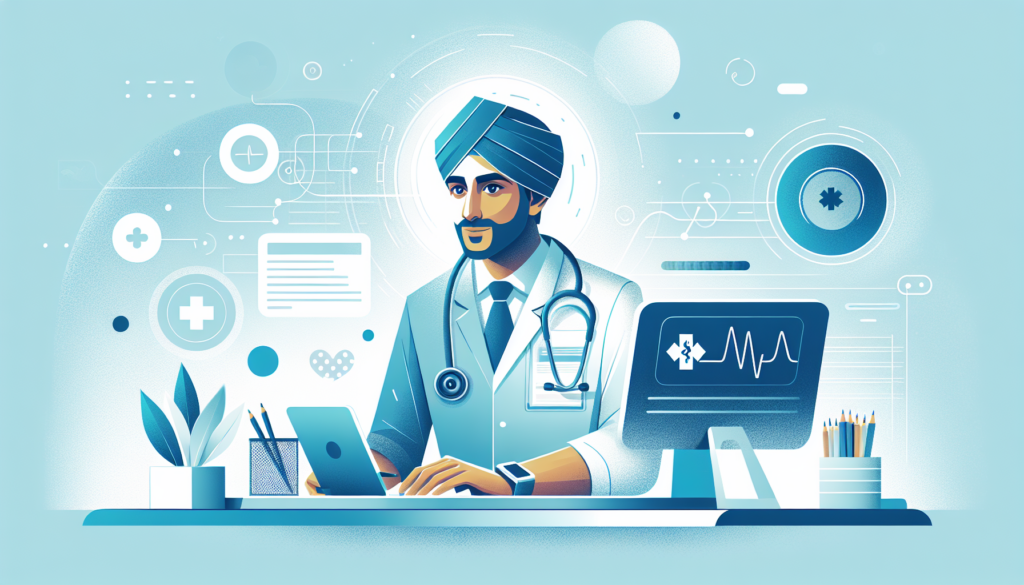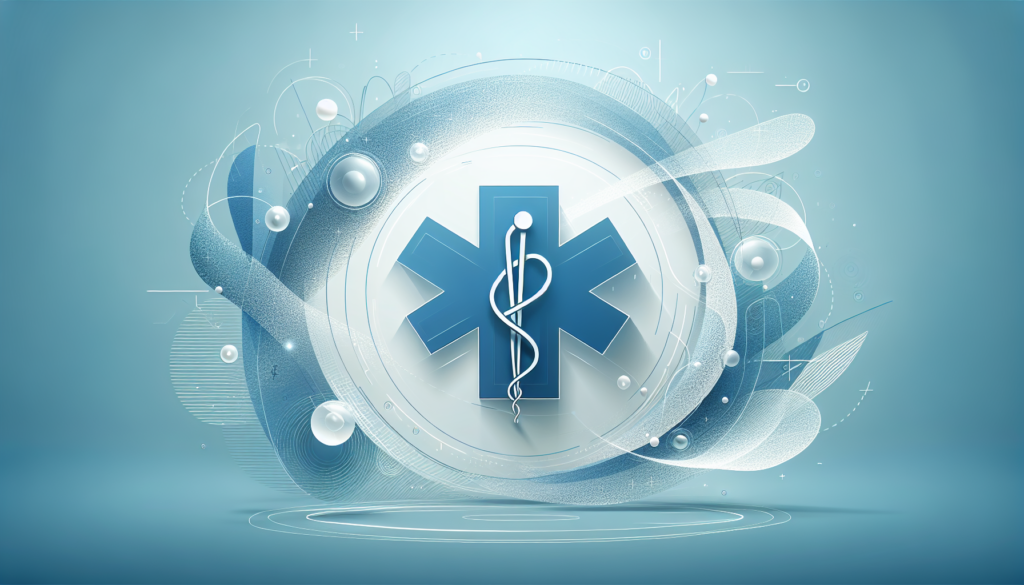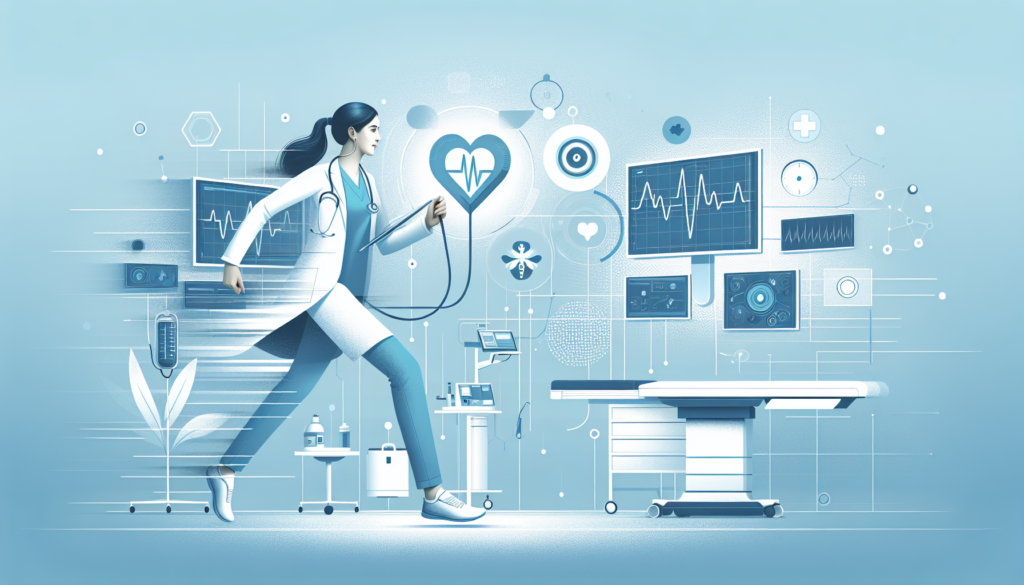Understanding the Role and Appeal of a Medical Transcriptionist
The role of a medical transcriptionist is one that sits at the crossroads of technology, healthcare, and lingual precision. Tasked with the crucial job of converting voice-recorded reports as dictated by physicians and other healthcare professionals into text format, transcriptionists serve as a pivotal backbone in managing patient information. This detail-oriented profession requires a deep understanding of medical terminology, as well as the ability to parse and convey the nuances of spoken words into accurate, readable text. Medical transcriptionists are often unseen yet vital contributors to the healthcare system, ensuring clear communication and meticulous record-keeping.
In a world where healthcare providers are pressed for time, the appeal of the medical transcriptionist’s skillset becomes evident. By offloading the task of documentation to transcriptionists, doctors and nurses can focus on direct patient care, increasing efficiency within the medical practice. Many transcriptionists work remotely, which offers a level of flexibility and work-life balance that is appealing to individuals seeking a secure job within the healthcare field that doesn’t require direct patient interaction. The proficiency of a transcriptionist directly affects the quality of patient care by providing thorough and precise records that are essential for diagnosis and treatment planning.
- Converts voice-recorded reports into text format
- Requires knowledge of medical terminology
- Supports healthcare professionals by reducing administrative load
- Potentially offers remote, flexible work arrangements
However, even with the clear benefits that medical transcriptionists offer, their role is evolving due to advances in artificial intelligence and speech recognition technology. The introduction of AI-powered digital scribes, such as those offered by ScribeMD.ai, showcase how the landscape is changing. These technologies listen, understand, and chart medical notes with high accuracy rates, which challenges the traditional transcriptionist role to adapt and integrate these new tools. By doing so, the transcriptionists can maintain their relevance in the healthcare field. They enhance their role by focusing on the oversight and editing of documentation, ensuring that the product of this advanced technology meets the rigorous standards required in medical records.
- Role is evolving with AI and speech recognition technology
- Maintains relevance through oversight and editing
- Ensures that AI-produced documentation meets medical standards
The skills required for effective medical transcription are comprehensive, and a mastery in them creates a solid foundation for professionals in this field to evolve alongside technological advancements. This continuous adaptation not only safeguards their role but also amplifies the value they bring to the healthcare industry. With AI integration, transcriptionists can elevate their expertise by focusing on more complex aspects of medical documentation, ensuring both accuracy and compliance are upheld. The ability to work synergistically with these emerging technologies will define the future and appeal of the medical transcriptionist profession.
- Requires ongoing adaptation and skill development
- Ability to work with emerging technologies
- Focus on complex aspects of medical documentation
The Pros of a Career in Medical Transcription
The healthcare industry consistently demands skilled professionals who can contribute to its myriad operations, and a career in medical transcription offers a unique intersection of medicine, technology, and administration. As a medical transcriptionist, one has the opportunity to play an integral role in documenting patient care, a component that bridges the communication gap between healthcare providers and is essential for maintaining accurate medical records. Flexibility stands out as a hallmark of this profession. Many transcriptionists have the liberty to work from home or elect flexible scheduling. This degree of work-life balance is particularly appealing to individuals requiring adaptable routines due to personal commitments or preferences.
Another significant advantage of a career in medical transcription is the potential for growth and continuous learning. The nature of the job compels transcriptionists to become well-versed in medical terminology and exposes them to various medical cases, procedures, and treatments. This continuous exposure can contribute immensely to one’s professional development and may open up avenues for advancement into editorial positions or specializations within specific fields of medicine. Moreover, as healthcare evolves, so does the demand for seasoned transcriptionists who are up-to-date with the latest advancements and regulations in medical documentation.
- Opportunities for remote work and setting one’s schedule
- Continuous exposure to the medical field leading to ongoing professional growth
- Possibilities for advancement into editorial roles or specialized transcription areas
For those who value job stability, a career in medical transcription can be particularly desirable. The healthcare sector is known for its resilience and steady growth, rendering professions like medical transcription relatively recession-proof. Furthermore, the rise of AI-powered digital scribe services such as scribeMD.ai contribute to a landscape where technology complements the skill set of transcriptionists, streamlining workflows and enhancing accuracy. This symbiotic relationship between human expertise and technological innovation assures the persistence of medical transcription as a vital cog in the healthcare documentation process.
- Job stability within a growing and resilient healthcare sector
- Integration with cutting-edge technologies such as AI-powered digital scribe tools
- Contribution to a crucial component of healthcare – accurate medical documentation
Embarking on a career in the field of medical transcription offers not only practical benefits but also the fulfillment of contributing significantly to patient care through meticulous documentation. The symbiotic advancement of transcription proficiency with evolving technological aids grants a dynamic scope for career enhancement. Professionals in this domain can take pride in facilitating the seamless conveyance of medical dialogue into comprehensible and accessible formats, ensuring a pivotal role in the grand mechanism of healthcare services.
Educational Pathways and Skills Required for Medical Transcriptionists
The journey to becoming a proficient medical transcriptionist typically begins with a solid educational foundation in the healthcare documentation field. Many community colleges, vocational schools, and even some universities offer certificate or associate degree programs in medical transcription. These programs commonly include coursework in medical terminology, anatomy, healthcare documentation, legal issues in healthcare documentation, and English grammar and punctuation specific to the medical field. Furthermore, knowledge in word processing and computer skills is crucial as medical transcriptionists need to adeptly navigate various types of medical record software.
Beyond formal education, aspiring medical transcriptionists are usually required to have some level of hands-on experience. This can be obtained through an internship or on-the-job training, where practical exposure to transcribing different types of medical reports and dictation is emphasized. It’s imperative that transcriptionists are able to interpret and transcribe recordings with accuracy and timeliness, demanding exceptional listening skills and a keen ear for medical jargon and nuances in speech.
- Certificate or Associate Degree in Medical Transcription
- Extensive coursework in:
- Medical Terminology
- Anatomy
- Healthcare Documentation
- Legal Issues in Healthcare Documentation
- English Grammar and Punctuation
- Essential Computer Skills
- Internship or On-the-Job Training for practical experience
The required skill set for medical transcriptionists is not limited to educational achievements and practical experience. Soft skills such as attention to detail, excellent communication abilities, and strong grammatical knowledge are all essential to ensure the accuracy and reliability of transcribed medical records. Additionally, transcriptionists must possess a good understanding of medical ethics and confidentiality to maintain the integrity and privacy of patient information. Professionalism is expected, as transcriptionists may need to communicate with healthcare providers to clarify information or ensure the correct interpretation of the data being transcribed.
- Listening Abilities: Exceptional skill in understanding and transcribing audio recordings.
- Attention to Detail: Precision in capturing every detail and nuance in the medical reports.
- Communication Skills: Ability to clarify and confirm information effectively with healthcare providers.
- Medical Ethics and Confidentiality: Strong adherence to ethical practices and patient privacy.
- Professionalism: Maintaining a respectful and courteous demeanor in all professional interactions.
The Growing Demand for AI-Integrated Transcription Solutions in Healthcare
The healthcare industry is increasingly turning toward technological advancements to streamline processes and enhance patient care. One area that has seen significant growth is the integration of Artificial Intelligence (AI) in transcription solutions. This demand is driven by the need for efficiency and accuracy in medical documentation, which is pivotal not only for quality patient care but also for legal compliance and billing purposes. AI-powered transcription tools, like those offered by ScribeMD, are being adopted rapidly as they offer a multitude of benefits over traditional methods of note-taking and record-keeping.
Among these benefits, the most prominent include time-saving features, the reduction of human error, and the ability to process natural language. Doctors and medical professionals can dictate their notes and have them transcribed in real-time, which allows them to maintain a better focus on patient interaction rather than on paperwork. It’s not just about cutting down on the clerical work; it’s about enhancing the overall healthcare experience for both the provider and the patient. This has resulted in a growing trust in AI-integrated systems, spearheading their widespread adoption in medical practices of varying sizes.
- Enhanced efficiency in medical documentation
- Improved accuracy with reduced transcription errors
- Real-time transcription for immediate review and record updates
- More time for patient care owing to decreased administrative tasks
Data security and privacy considerations are also a driving force behind the adoption of these advanced systems. With strict regulations such as HIPAA in place, healthcare providers must ensure that patient data is handled securely. AI-integrated transcription solutions are designed keeping these regulations in mind, ensuring that they not only transcribe with precision but also maintain the highest standards of data protection. This dual capability of ensuring accuracy in documentation and fulfilling legal data security requirements further pushes the demand for AI-driven transcription services in the healthcare sector.
Furthermore, the scalability of AI-integrated transcription solutions allows healthcare providers to address the ever-increasing volume of patient encounters without compromising the quality of medical notes. As patient loads continue to rise, the ability to quickly, accurately, and securely document medical information is more crucial than ever. AI transcription tools can easily be adapted to meet these growing needs, making them an indispensable asset to healthcare operations. The demand for such solutions signifies the ongoing transformation within the healthcare sector, wherein technology and patient care are becoming increasingly intertwined to foster better health outcomes.
- Adherence to HIPAA and other regulatory standards
- Enhanced data security measures
- Adaptable to accommodate increasing patient volumes
How Scribemd.ai is Revolutionizing Medical Transcription for Aspiring Professionals
The landscape of medical transcription is undergoing a radical transformation, thanks in large part to innovative platforms like Scribemd.ai. For aspiring medical professionals who are just entering the field, this AI-powered digital scribe represents a leap forward in efficiency and accuracy. No longer must these newcomers to the healthcare industry rely solely on traditional, often cumbersome methods of documenting patient interactions. Scribemd.ai’s sophisticated algorithms interpret and transcribe complex medical dialogue swiftly, thereby streamlining the process from spoken word to official record with remarkable precision.
As a tool, Scribemd.ai embodies the cutting edge of medical documentation technology. It offers an unparalleled user experience by integrating seamlessly into existing medical workflows. Aspiring professionals using this system can expect a rapid adaptation period due to its intuitive interface and robust support framework. By automating the transcription process, Scribemd.ai frees up valuable time for these individuals to allocate towards more pressing aspects of patient care, education, and hands-on training—areas where the human touch remains irreplaceable and critical to the healing process.
- Automated Transcription: Converts spoken language into written text with high accuracy.
- User-friendly Interface: Simplifies the adoption of technology for new users.
- Time-saving: Allows aspiring professionals to focus on patient-centric tasks.
The role of medical transcription is not merely to document but also to ensure the accuracy of patient records, which are critical in delivering quality care and treatment plans. Scribemd.ai stands as an indispensable ally to aspiring medical professionals by boasting advanced language learning models that are sensitive to medical terminologies and contexts. This specificity is essential in a field where a single misinterpreted term can lead to significant consequences. Harnessing the power of artificial intelligence to enhance transcription reliability represents a quantum leap in mitigating risks associated with manual transcription methods traditionally employed by those new to the practice of medicine.
Indeed, the introduction of Scribemd.ai is emblematic of the future of medical documentation. It is not an overstatement to say that such technology is fast-becoming the backbone of an efficient healthcare environment for the next generation of medical professionals. The potential for Scribemd.ai to continually evolve with the healthcare sector’s needs signifies its role in fostering a sustainably progressive medical documentation ecosystem—a boon for aspiring professionals and veteran practitioners alike.
- Enhanced Accuracy: Language models understand medical terminology and context.
- Risk Mitigation: Reduces potential errors inherent in manual transcription.
- Future-proofing: Adapts and evolves with the changing landscape of healthcare.
| Key Takeaways |
|---|
| AI-powered transcription tools greatly enhance efficiency and accuracy for medical documentation, especially for newcomers to the field. |
| With intuitive interfaces and advanced language understanding, technology like Scribemd.ai allows aspiring medical professionals to focus more on direct patient care. |
| The high accuracy rate and sensitivity to medical terminology offered by Scribemd.ai substantially minimize the risks associated with manual transcription. |
| Scribemd.ai indicates a move towards a future where evolving AI tools support a dynamic and efficient healthcare documentation system. |



